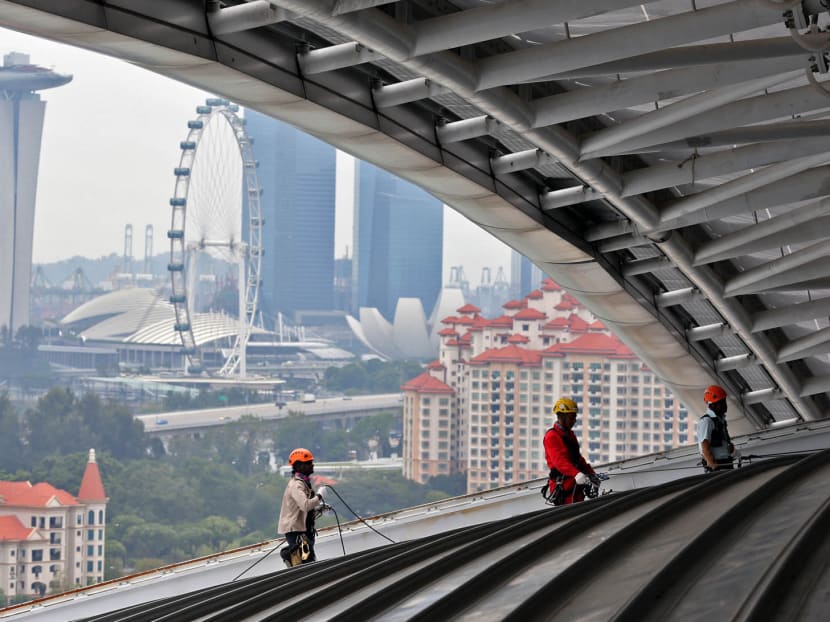Mr Lee Kuan Yew a driving force behind growth of sports
SINGAPORE — The email came at 1.30am, only hours after the International Olympic Committee revealed that Singapore would host the inaugural Youth Olympic Games in 2010.
SINGAPORE — The email came at 1.30am, only hours after the International Olympic Committee revealed that Singapore would host the inaugural Youth Olympic Games in 2010.
Earlier in the evening of Feb 21, 2008, Prime Minister Lee Hsien Loong and other ministers had cheered the announcement with a 5,000-strong crowd gathered at the Padang. Mr Lee Kuan Yew was not among them.
Instead, the country’s founding Prime Minister was busy banging out an email to Singapore National Olympic Council vice-president Ng Ser Miang, who spearheaded the Republic’s winning bid over Moscow and subsequently became chairman of the Games’ organising committee.
“Mr Lee said the Youth Olympics would project Singapore’s international image and gave advice on how we should organise and make the best use of it for Singapore’s benefit,” said Mr Ng. “At the closing ceremony in Marina Bay two years later (on Aug 26, 2010), Mr Lee made an unscheduled stop to say he was happy how the Games went and how our athletes performed.”
His interest in sport contrasts with much of what has been made of his remarks at the opening of the former National Stadium in 1973, that Singapore should “not waste time going especially out of our way to produce gold medallists, whether for (the) Olympic, Asian or Southeast Asian Peninsular (SEAP) Games”.
But former athletes and officials tell a different story, of how Mr Lee was a driving force behind the progress of sports in Singapore, because most of what was done was delegated to E W Barker and Mr Othman Wok, the respective Law and Social Affairs Ministers in his Cabinet at that time. Since then, the Republic’s sports industry has grown, crossing the S$1 billion mark in 2007.
“With growing the economy an urgent priority in the early 1970s, Singapore had to focus on providing jobs and supply a workforce for various industries,” said former national water polo player and sports administrator Tan Eng Liang.
“But he was instrumental in pushing sports for the masses and behind the master plan to build facilities like stadiums, sports halls, swimming pools, and basketball and sepak takraw courts in every housing estate.
“The National Stadium and Singapore Indoor Stadium were part of this plan and these arenas were among the best in Asia.”
The Singapore Sports Council (SSC) was set up in 1973 to centralise all aspects of sports and, two years later, Dr Tan was appointed chairman, holding the post for 16 years. Though it operated on a small budget, Mr Lee’s Cabinet gave its support for the many programmes they introduced.
“We organised inter-constituency competitions across different sports and Mr Lee regularly attended them to give away the trophies. He was a very busy man and would not have gone to them if he was not interested in sports,” said Dr Tan. “Under his watch, the SSC was helping to lay a foundation that sport is enjoying today, with various programmes for excellence. I dare say this is Mr Lee’s legacy.”
In the early years after Singapore gained independence in 1965, gold medal athletes also received personal letters from Mr Lee, added Dr Tan, who got his with the national water polo team after they won at the 1965 and 1967 SEAP Games, the precursor of the SEA Games.
Former teacher and national sprinter Canagasabai Kunalan also recalled that civil servants were granted generous time off to prepare for important meets.
“When we were preparing for the SEAP Games, we got two weeks off to train, and an extra seven days if it was for the Asian Games,” said Mr Kunalan, 72, a four-time SEAP Games champion.
“The government might have been responsible for this, but without Mr Lee’s approval, this would not have gone on. He made sure things could happen.” ADDITIONAL REPORTING BY SHANJAYAN MUNIAPPAN







